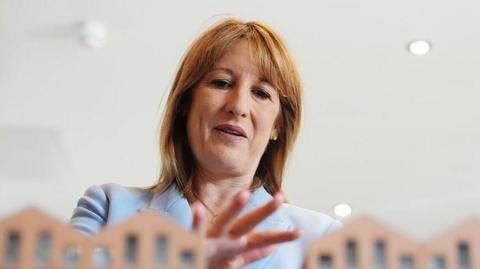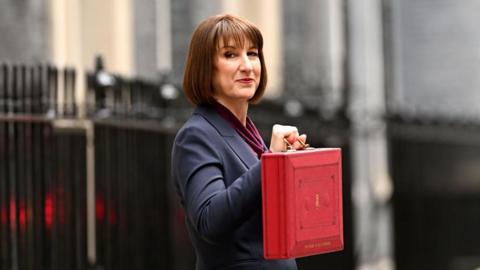So the gilt markets are not fundamentally showing a mini-budget style UK-specific problem. At the same time, there is a clear warning signal here.
Fragile global bond markets do keep an eye on any unattractive economic or political factors. In this case the UK's high inflation, and any doubt after the summer U-turns about the government's control over events, could quickly turn problematic.
Indeed, expect the chancellor's team to use the bond market rollercoaster to make the case that the answer to the autumn's tricky Budget balancing act is not more debt through watering down her borrowing limits. Any gap, they will argue, will have to be filled by higher taxes or lower spending.
The amount of that adjustment depends on markets and the judgement of the OBR on the long-term performance of the economy. There was some substance to the chancellor's off-the-cuff comments to me suggesting the forecasters stick to their primary role rather than giving a "running commentary on policy".
The OBR judgement on UK productivity could be the single biggest determinant of how much of a gap there is, and therefore how much Budget pain the chancellor needs to administer.
Expect some haggling, with the Downing Street team of economists adamant that the OBR's forecast should reflect their reforms, especially on planning. The first take of that critical independent judgement is expected to be delivered to the chancellor in the final days of this month, around the time of her conference speech in Liverpool.
At that point the long list of potential Budget revenue raisers will start to populate the Treasury spreadsheet known as the "scorecard". Rumours will fly around. Indeed ministers are amazed at some of the speculation so far. For example, bank shares fell on suggestions the chancellor would enact a think tank report on windfall taxes, published when she was on holiday, that she has never even read.
Departmental budgets have already been set in the Spending Review, and there is no plan to reopen that process, which must mean that any restraint will have to come from the wider Welfare Bill.
The chancellor did not rule that out to me, but said there was "more to do" on reforms that helped people back into work. The new cabinet, without the former deputy PM, author of a leaked letter on wealth taxes, might be more amenable.
All in all this is the chancellor's chance to author some long-term, pro-growth reforms to the tax system. She still hopes to do that.
But OBR spreadsheets, market ructions, and backbench unhappiness on cuts will ultimately determine just how big the extra tax demand in the red box is on 26 November.
Much can change between now and then.

